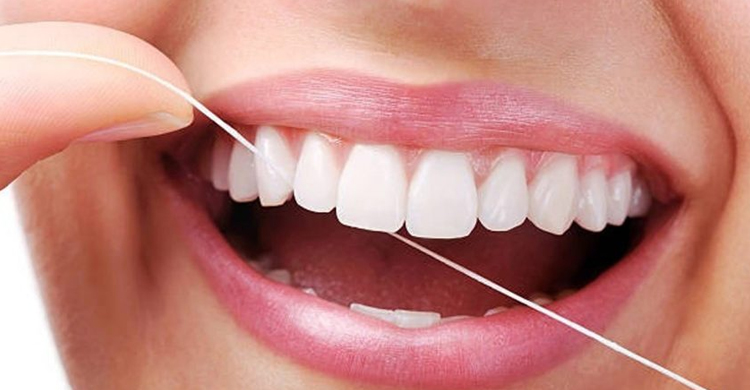
Blog Posts
RECENT BLOG POST


04 Aug 2021


10 Aug 2021


10 Aug 2021


By Dr. Aastha Chandra

15 Mar 2023
THINGS YOUR DENTIST WISHES YOU KNEW:
Going into a dental office can often feel like entering into an entirely new dimension. The clinical environment, the latex gloves, the whirring appliances, and medical devices all add up to an alien experience for a few. Dental hygiene is important, but it can be intimidating.
For some, visiting a dentist cannot only elicit curiosity but anxiety as well. Arming yourself with the facts and understanding the basics of dental health and hygiene can help make a dental checkup an informative and easy experience.
Dentists love patients who know and practice good dental health routines. Remember, the more you know, and the better you take care of your teeth, the less pain and confusion you’ll face when you
step into your dentist’s office.
Following are some things that dentists wish their patients knew:
1. DIET IS JUST AS IMPORTANT AS DAILY BRUSHING:
Regular brushing and flossing is only half the battle. Regular dental hygiene routines help remove dental plaque, bacteria, food debris, and other damaging substances from the mouth.
What we expose our teeth to before our cleaning also matters. What you choose to put into your body through your mouth has a direct and immediate impact on your oral health and lasting long-
term effects that may take weeks, months, and even years to manifest.
For example, consuming sugary sodas daily can have immediate disastrous effects on your teeth. These acidic beverages erode enamel, while coating your mouth with enormous amounts of
bacteria-fueling sugar, which further degrades dental health. Furthermore, long-term soda consumption can contribute to diabetes, putting patients at a greater risk of periodontal diseases.
Diet and dental health are inextricably linked. Every dentist wishes their patients would not only prioritise good dental hygiene but healthy eating habits as well.
2. DRY MOUTH IS A BIG DEAL:
Dry mouth, whether from disease, prescription drugs, tobacco and alcohol use, or simply genetics, is a huge obstacle to healthy teeth.
While it may not seem like a big deal, dry mouth can cause severe dental complications. Human saliva is a mineral-rich solution that both cleanses and protects teeth from acid-spewing microbes and other nasties. When saliva production is flat or lacking, your teeth become extremely susceptible to plaque, tartar, bacteria build-up, and the development of dental caries. Fortunately, a dentist can usually identify and directly treat dry mouth.
3. COFFEE, TOBACCO AND ALCOHOL ARE TERRIBLE FOR TEETH:
While coffee may have some redeeming qualities, the consumption of this favorite beverage and the use of tobacco and alcohol also creates problems for dentists.
Coffee is notoriously acidic and will erode enamel and stain teeth as a result of its tannin content. Unlike regular food debris, coffee stains aren’t as easily removed with a thorough brushing. Meanwhile, tobacco and alcohol use are notable not only for being common vices but also for being risk factors for oral cancer, dry mouth, stained and eroded teeth, and a host of other oral issues.
While coffee isn’t so bad in comparison to tobacco or alcohol, it will discolor your teeth.
4. DENTAL XRAYS AREN’T HARMFUL:
Technically, x-rays themselves can be dangerous to those exposed to large amounts of gamma radiation without adequate protection. However, in a clinical setting such as Willow Pass Dental Care, x-ray machines are carefully operated by trained professionals. They are typically limited to only a small area of the body, such as the mouth. Patients are provided with lead-lined protective vests which completely block any errant x-rays.
When it comes to the x-ray procedures performed as a part of a typical dental exam, there’s absolutely no need for concern under normal circumstances.
5. BLEEDING GUMS IS A REAL ISSUE, FLOSSING IS A REAL SOLUTION:
Many patients experience bleeding gums and gingival sensitivity during routine dental exams and regular brushing. While a little blood is easy to ignore, most dentists agree that unless you’re
whaling away at your mouth with a hard-bristled toothbrush (not recommended), bleeding, no matter how insignificant, is a sign of gingivitis.
One tried and tested solution is to start flossing regularly and correctly to remedy bleeding and dental sensitivity. Based on how patients react to professional flossing and the amount of gingival bleeding that occurs, most dentists and hygienists can get a good idea about a patient’s flossing habits. Flossing remains one of the most neglected dental hygiene habits.
6. YOUR TOOTH BRUSH HAS AN EXPIRY DATE:
Toothbrushes harbour bacteria. Be sure to get a new toothbrush approximately every 12 weeks. But don’t just stick to the 12 week rule, if you notice your brush is getting smelly or looks worn, update
your brush immediately.
7. YOU SHOULD SEE YOUR DENTIST EVERY SIX MONTHS:
Prevention is the best cure, and when it comes to oral health, regular dental checkups allows your dentist to maintain a clean and healthy mouth, as well as detect early signs of disease.
8. BABY TEETH ARE VERY IMPORTANT:
Primary teeth (baby teeth) are important to keep cavity free. Cavities are among the top three most common diseases effecting children. It is important to have a routine check up with your childs dentist as they can prevent and treat cavities before they seriously effect a child’s baby tooth. An unhealthy primary tooth can cause serious health problems to the child. Along with severe pain, cavities can lead to poor eating habits. A serious infection can cause the tooth to be lost prematurely. This premature loss may cause spacing issues which can only be corrected using braces.
9. THE DENTIST KNOWS YOU’RE SCARED:
It’s the middle of the night and you’re suddenly awoken by a throbbing pain in your tooth. You know you need to see the dentist, but the thought of sitting in the chair fills you with dread. After all, the dentist knows you are scared. They have seen the way you flinch when they come near you with the drill. They know how much it hurts when they poke and prod your mouth. But they also know that
you need their help to get rid of the pain.
So, the next time you find yourself in the dentist’s chair, remember that they are there to help you, not hurt you. They will do everything they can to make sure that you are comfortable and pain-free. And, before you know it, the appointment will be over and you’ll be on your way home.
10. FLOURIDE IS IMPORTANT:
The general public has debated the effectiveness of fluoride for years. Still, the IDA firmly recommends getting fluoride either in your toothpaste or in your drinking water to prevent your risk of cavities. The research is undeniable: ingesting fluoride, a natural cavity-fighter, is proven to reduce up to 40% of tooth decay. If you don’t live in an area that already has drinking water with fluoride, consider using a fluoride rinse or mouthwash to help keep your teeth strong and healthy.
CONCLUSION:
These are just a few of the things your dentist wish you to knew. Remember, your dentist is there to help you maintain good oral health and keep your smile looking its best. So make sure you listen to their advice and visit them regularly for checkups and cleanings.

